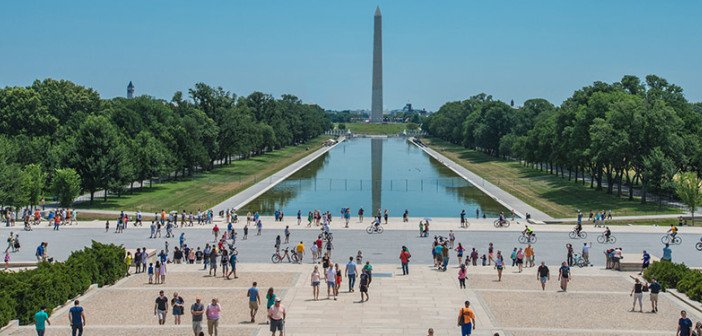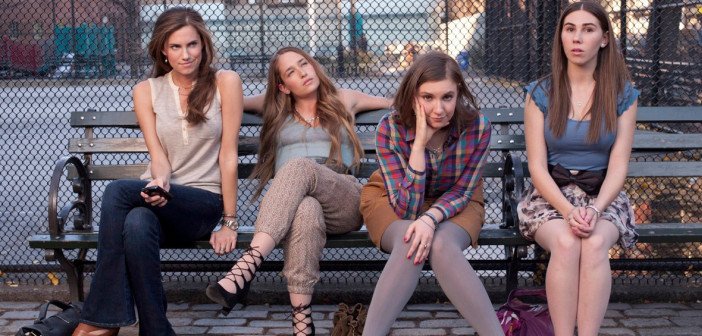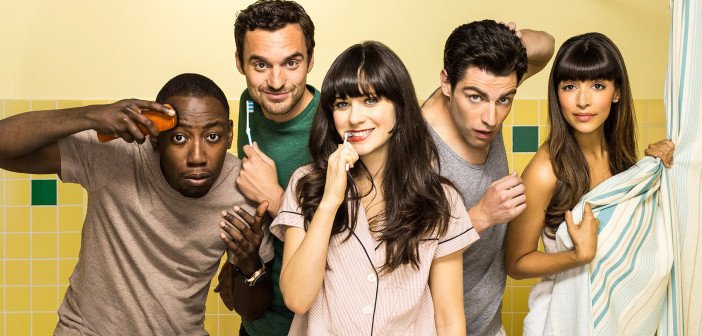Where Are All My Neighbours? | Observations on Racial Representation in American Pop Culture
I’ve revisited this sentence a few times, wondering how best to phrase it in a way that isn’t immediately offensive, or doesn’t write me off as ignorant, but I don’t know how else to say it; the first thing I noticed when I landed in Washington DC was black people.
I hope you’re still reading.
With an estimated 54% black population, DC happens to be a predominantly black city, and I reasoned that it might have been culture shock that took hold, having come from what seemed a very monocultural Ireland by comparison. Still, it wasn’t numbers or ratios that struck me, and I struggled to put my finger on what seemed so alarming about this observation. I mean, I knew black people lived in America. Why then was it almost surprising to see them waiting for the Metro, pushing carts through Safeway and standing in line with me at CVS?

There is a scene in Chimamanda Ngozi Adichie’s sharply observant Americanah, in which the protagonist, Ifemula, is ridiculed by her boyfriend for picking up lifestyle magazines targeted at black women. She reasons that the hair and make-up tips in more mainstream publications are targeted at white women and, therefore, of no use to her, a black woman. This seemingly trivial insight offered by a fictional character carried more weight than I realised and illuminated something I hadn’t before considered; as knowledgeable as I considered myself on parts of black history in America, I had confined my understanding of the experience of black people on a whole to just that – a chapter in history.[pullquote] I knew black people lived in America. Why then was it almost surprising to see them waiting for the Metro, pushing carts through Safeway and standing in line with me at CVS?[/pullquote]
I had never really considered race in the present day, and the many issues still plaguing black people, from police brutality to the politics of black hair. So I actively started to pay attention to the issue of gross under-representation (and equally misrepresentation) of black people in mainstream media for the first time, feeling genuinely queasy and hot with shame at how much I had been oblivious to. I also knew my being Irish could only shoulder so much of the blame.
While Ireland is not an inherently racist country as America is (we do not have a deeply engrained, centuries-old problem with systemic racism), that does not excuse us from paying attention to the issue of racial representation in American media and pop culture. We consume American pop culture to saturation point, as much as, if not more than, any other country in the world. Music, movies, magazines, TV shows, brands, food and advertising roll over the waves of the Atlantic and crash down over us, and we drink it all up with vigorous thirst. Only since living on the other side of those waves did I realise with keen interest and fascination comes responsibility.
The first time I was ever alerted to the issue of racial representation on screen was in 2012, following criticism of Lena Dunham’s show, Girls, for its lack of diversity. Dunham’s response was that the show portrayed the world as she experienced it, and she just happened to be at the centre of a privileged white bubble. I nodded in agreement, simultaneously dismissing the critique; this too was my experience of the world, even if being Irish made it less of an offense.

A few years later, I find myself tuning out of Netflix’s Scream just one episode in, in a bid to shield myself from passively soaking in another version of the overly familiar image of young, privileged white wholesomeness (Friends, Gossip Girl, One Tree Hill, The OC etc). Was that dramatic? Perhaps, and I’ll never know if the equally wholesome black characters all entered stage right in Episode 2. What doesn’t seem dramatic, however, is the idea that under-representation of black people and over-representation of white people on our screens plays a part in how we judge real life situations, particularly when privileged young white people brush up against controversy and our unconscious bias leans in their favour.[pullquote] I actively started to pay attention to the issue of gross under-representation (and equally misrepresentation) of black people in mainstream media for the first time, feeling genuinely queasy and hot with shame at how much I had been oblivious to.[/pullquote]
The idea that such a bias is fuelled by the images of goodness and innocence we are constantly bombarded with on screen through white-led TV shows doesn’t seem dramatic either. I tuned out because among the familiar group of white teens in that show I started to see the faces of Brock Turner and Maria Sharpova. “He had such a promising future” and “She just made a mistake” are not excuses readily rolled out when a black person is at the other end of the situation. Instead, the media seeks to hunt down criminal records, mug shots and proof of gang affiliation, blindly ignoring the fact that prior convictions, if they exist, are as irrelevant as being good at swimming in light of the accusation they are facing.
Engaging with the online commentary surrounding some of the most successful American TV shows has been hugely insightful, and an eye-opener for me as I try to become more conscious of what I watch. It’s interesting to see how criticisms with regards to representation can make a show braver and more complex later on, if writers choose to address them.
New Girl went from being a show accused of poorly developing its characters of colour compared to their white counterparts to a show that offered a sincere and touching moment in its most recent series as Winston, a black cop in training, recalls instances of racial profiling by police in his youth and expresses his concerns about joining a force so riddled with racial prejudice. Similarly, but more harshly criticised for its overly simplistic portrayal of Black culture in previous seasons, the most recent series of Orange is the New Black comes pretty loaded, offering commentary on race in America and focusing heavily on black lives, particularly in relation to police brutality.

[pullquote]I tuned out because among the familiar group of white teens in that show I started to see the faces of Brock Turner and Maria Sharpova[/pullquote]
Neither show becomes instantly perfect as a result of taking on board the very just criticism they have faced regarding race and representation, but it is encouraging to see efforts made (though diversifying the teams of writers behind these shows would be the best effort of all). I have a long way to go in educating myself on this issue, and I realise my eyes have only been partially opened.
Still, it’s enough that I am careful not to mindlessly ingest another American TV show that, in 2016, still doesn’t represent black people equally and accurately. I am careful not to passively absorb lazy stereotypes depicting black people as angry, brash, content domestics, thugs or ‘magical.’ I am careful not to settle for less on screen than in real life, so that my perfectly normal DC neighbourhood doesn’t strike me as anything other than that again.
